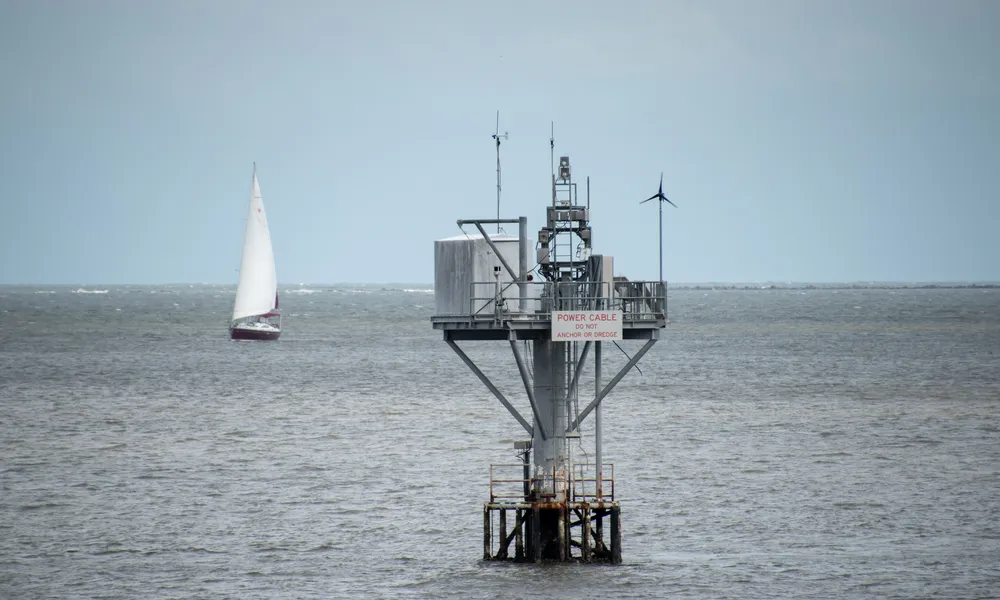By June 2026 the latest, the distributed energy storage system with a total capacity of 120 MW, which is currently being implemented, will be operational and will function with full transparency on the basis of the 'Policy for Management and Participation in the Competitive Electricity Market,' Energy Minister George Papanastasiou said on Monday during the presentation of the Electricity Authority’s (EAC) 2024 annual report.
At the same time, Papanastasiou said that, according to estimates by the Cyprus Transmission System Operator, at least 600 MW of storage capacity will be required by 2030. Citing data for 2023, he noted that energy poverty affected 66,700 households - 17.5% of all households in Cyprus - up from 50,290 households in 2022, or 15.1% of the total, compared to 10.6% in the EU, due to rising energy prices.
Energy poverty
He said that in 2023 energy poverty in the EU was assessed at 10.6% based on household survey questionnaires related to how easily a residence can be heated. In Cyprus, according to Papanastasiou, 19.3% of households said that they struggle to heat their homes.
In his speech, the Energy Minister said that the government is working together with the EAC to address daily challenges in the electricity and broader energy sector, with “the ultimate goal of ensuring adequate electricity supply, the safe operation of our electrical system, and the reduction of electricity prices, while contributing to green growth and strengthening the country’s competitiveness.”
Referring to some of the challenges faced, the Minister said that these include upgrading the grid and installing storage systems in order to increase the penetration of renewable energy in Cyprus’ electricity system and reduce curtailments of renewable energy production (RES) production, implementing the EAC’s development programme for power generation, including the upgrade of the Dhekelia Power Station, installing additional RES systems by the organisation, and the operation of the competitive electricity market.
Vasiliko power station
Papanastasiou praised the EAC’s commitment to carrying out important modernisation projects, such as upgrading and digitising the transmission and distribution networks under its 10-year development plans.
He also referred to the upgrade of the Vasilikos power station, and to the completion of the installation of the new unit that will operate on natural gas, as well as upgrades to the existing units so that they are ready for natural gas combustion.
Climate change
The Cyprus Electricity Authority is focused on four strategic priorities - tackling climate change, providing affordable electricity, ensuring energy security, and delivering high-quality customer service - EAC Chairman George Petrou said, presenting the organisation’s 2024 activity report.
Petrou stressed that energy storage was “key for Cyprus, an isolated electricity system, because it enhances stability, reduces costs and enables full utilisation of green energy.” He added that the EAC is investing in critical projects that strengthen sustainability, energy efficiency and technological progress.
Solar parks
He noted that the inability to export surplus renewable energy is already leading to curtailments, adding that “the solution lies in storage, which acts as a balancing mechanism and provides flexibility to the system.” To that end, the EAC is moving ahead with large-scale projects, while the Transmission System Operator is installing three storage systems at transmission substations.
Petrou said the utility’s aim was the operation of new photovoltaic parks “as quickly as possible.” Recently, two solar parks, the 12 MW facility in Akrotiri, Limassol, and the 8 MW park in Achera, in Nicosia, were added to the EAC’s generation mix. The cost of energy produced by these parks is around five cents per kilowatt-hour, offering a small but tangible reduction in electricity costs for consumers, he said.
He added that additional solar parks are being planned across Cyprus, with further projects moving through the licensing process, with the goal of significantly increasing the contribution of renewables to the EAC’s energy mix.
Energy generation
The EAC is also taking decisive steps to secure sufficient electricity generation capacity for the coming years, Petrou said.
He also highlighted the EAC’s central role in major national infrastructure projects, including the development of the LNG import terminal, which, he said, was crucial for the country’s energy transition, as well as efforts to address water scarcity through the Vasilikos desalination plant, which supplies 60,000 cubic metres of water daily.
Electric mobility is another priority, he added. The EAC’s e-charge service is expanding a nationwide network of fast and semi-fast chargers. The organisation currently operates 35 dual charging stations, including four fast chargers, with plans for a further 40 stations by the end of 2026, including coverage of mountainous areas, he added.
CNA
